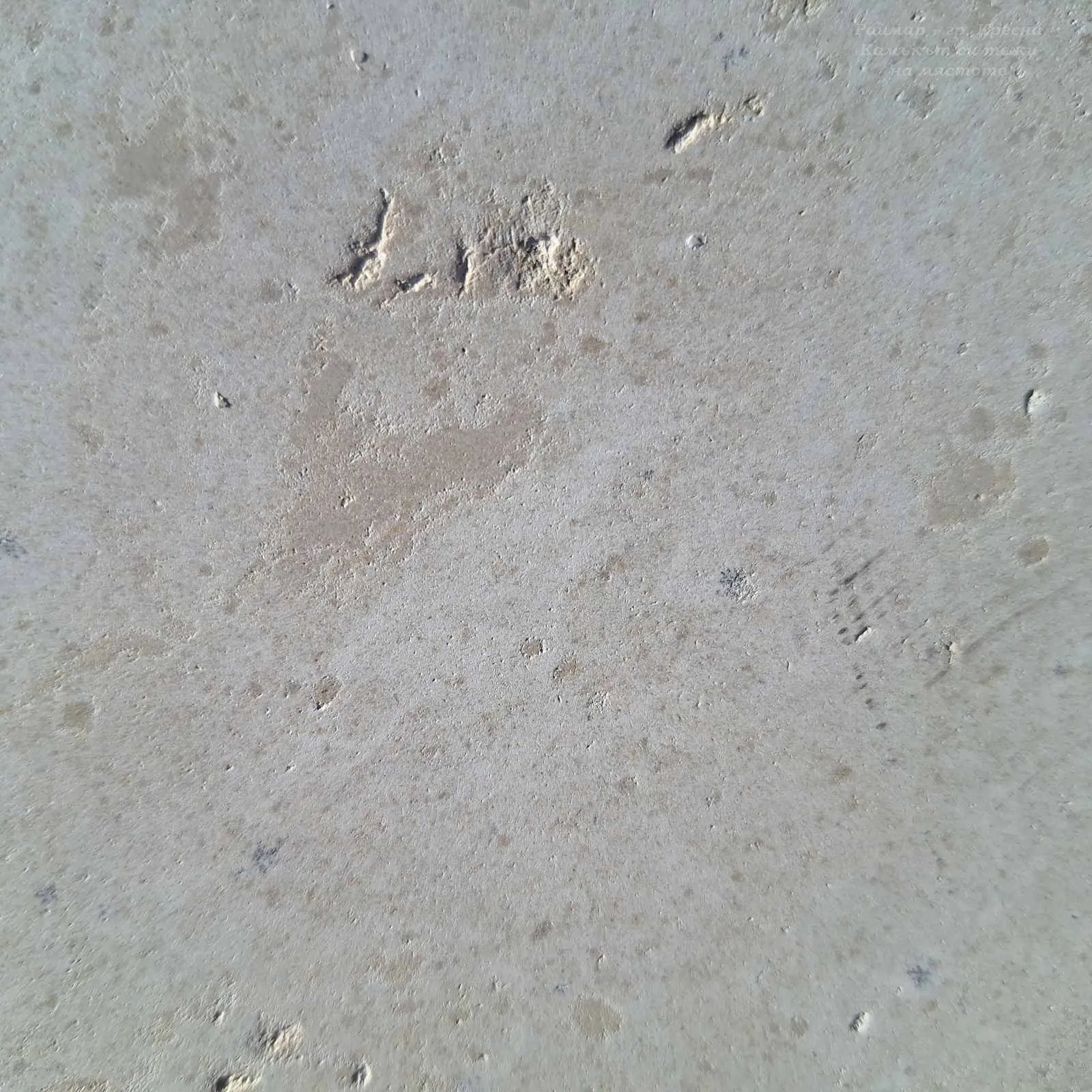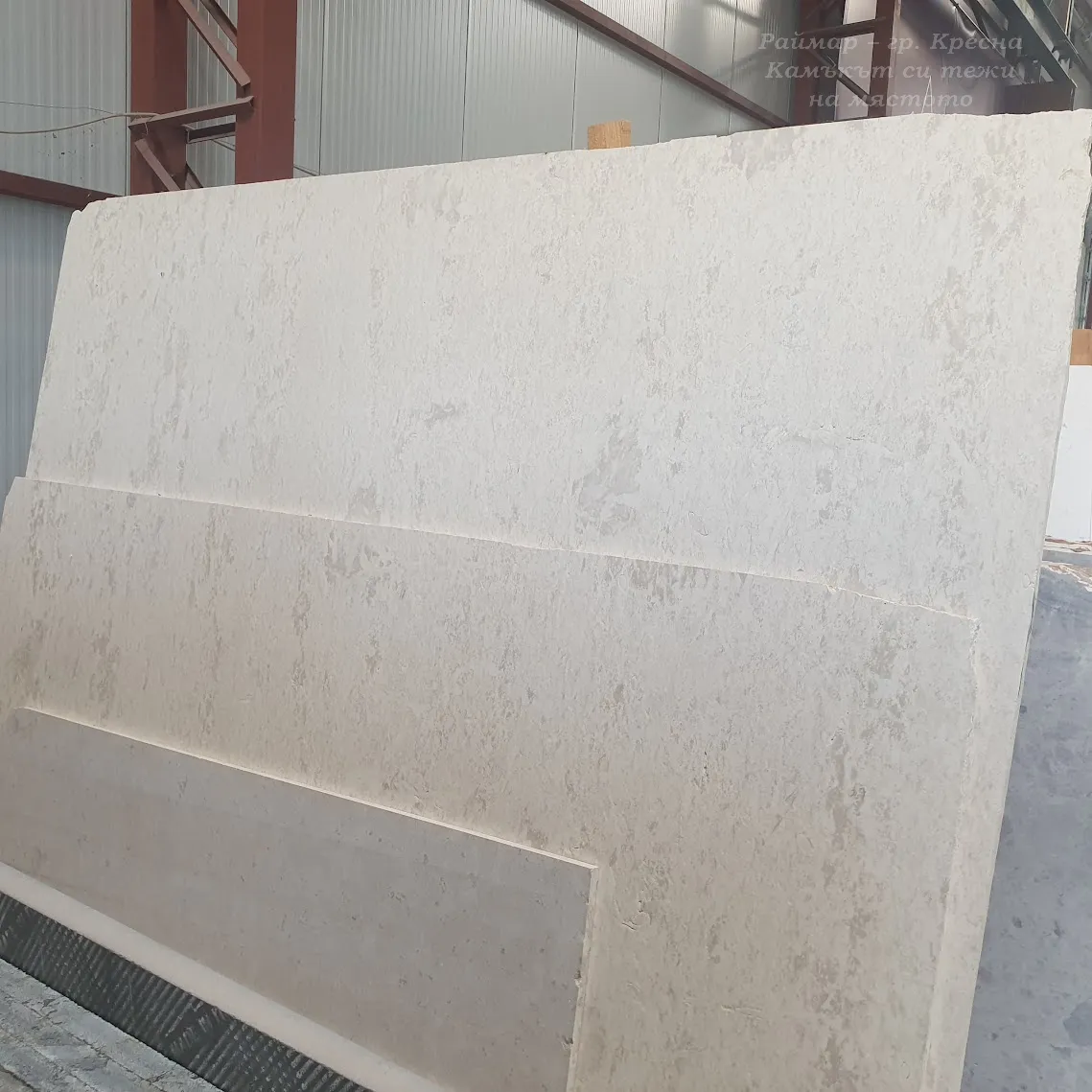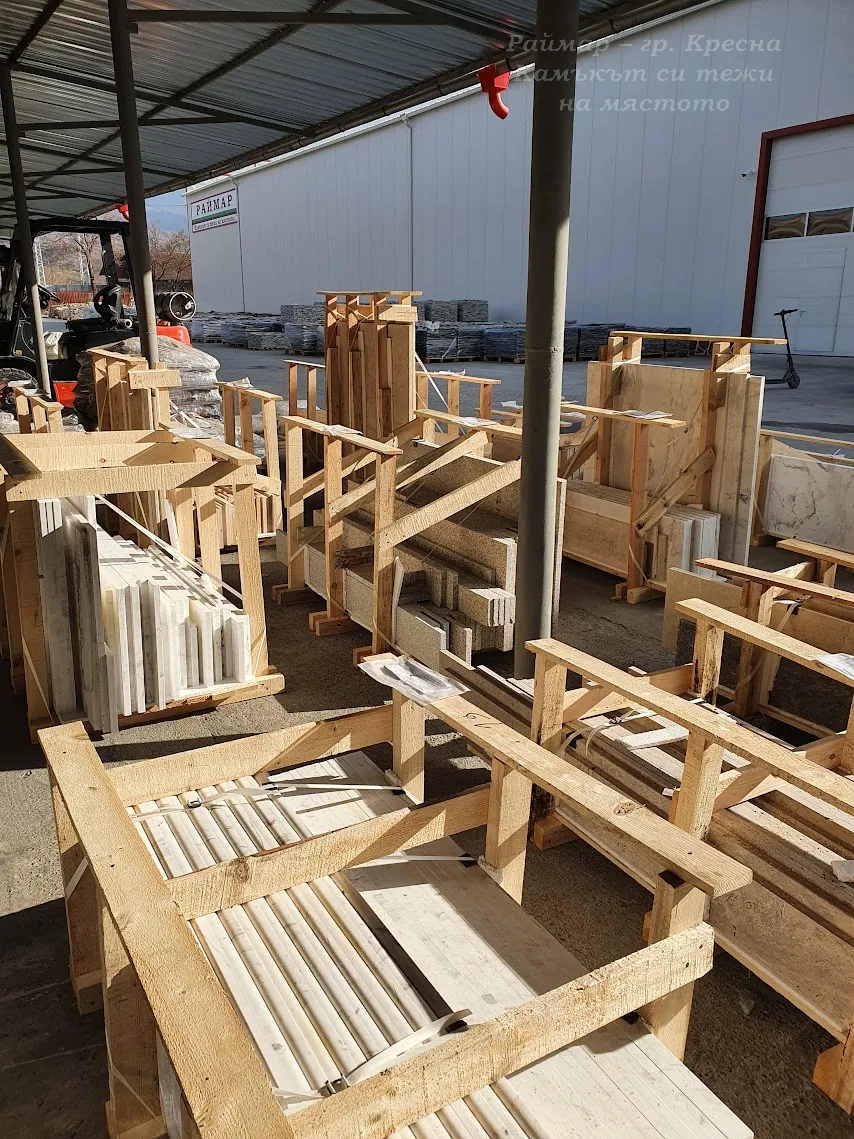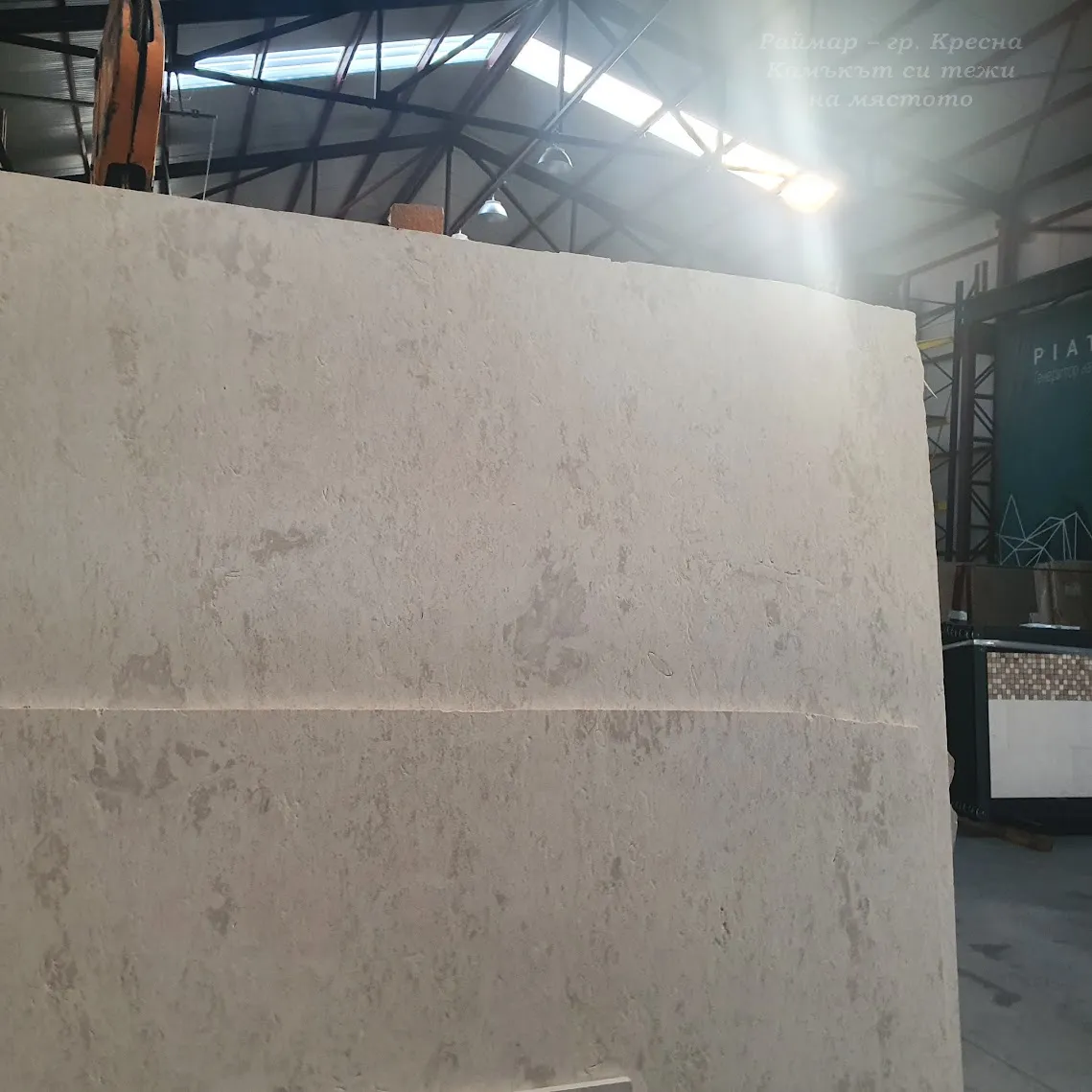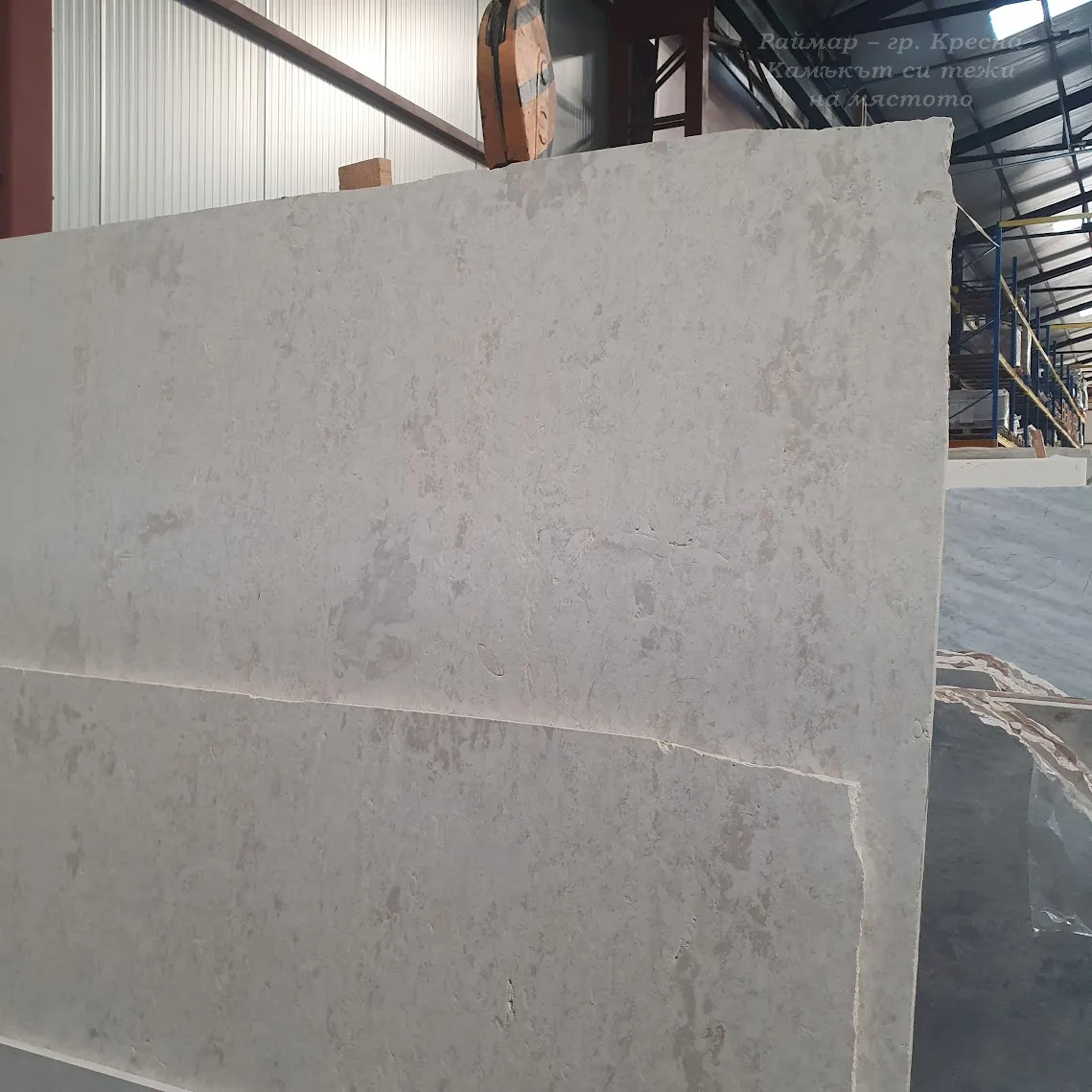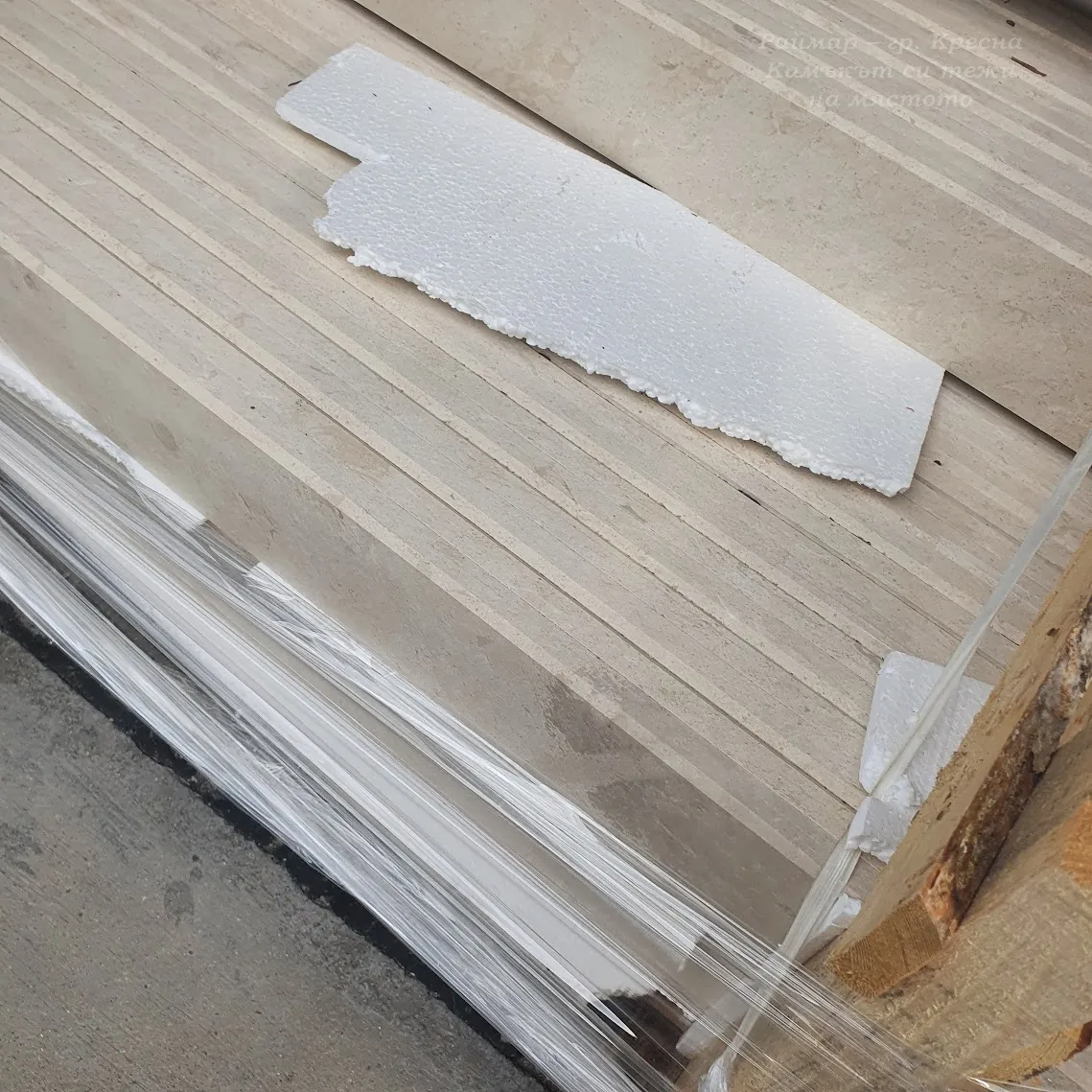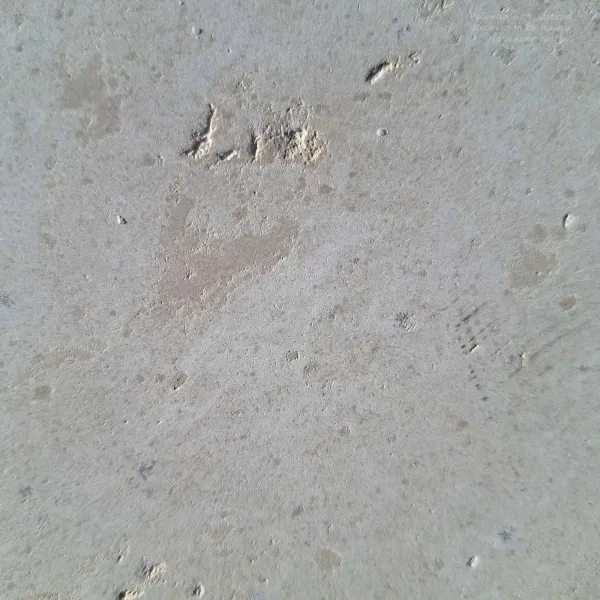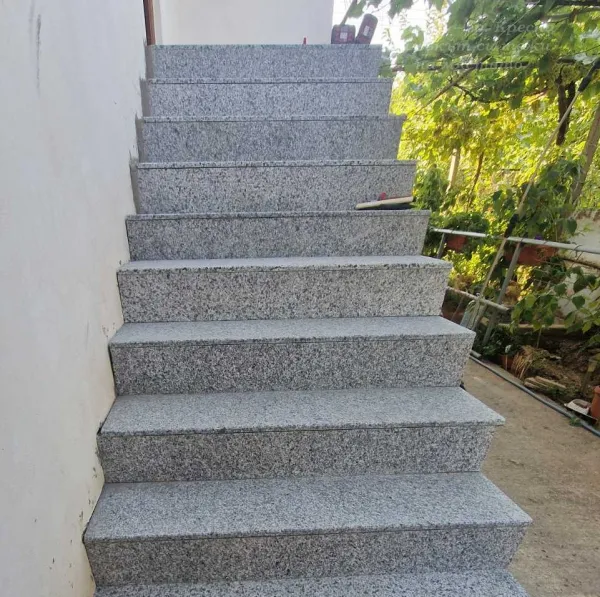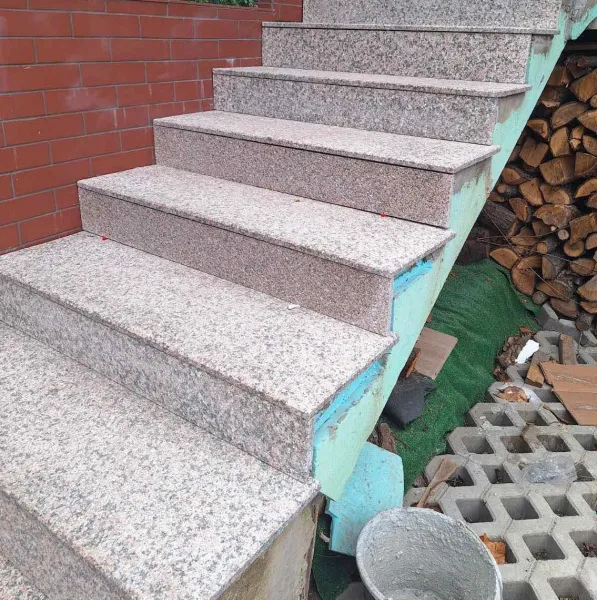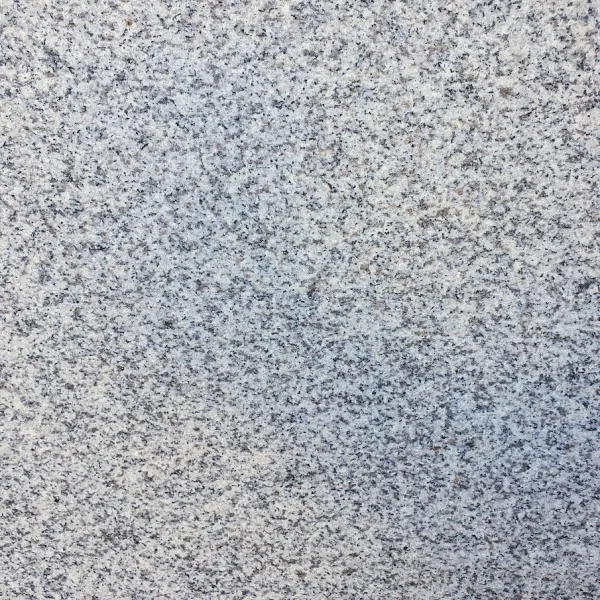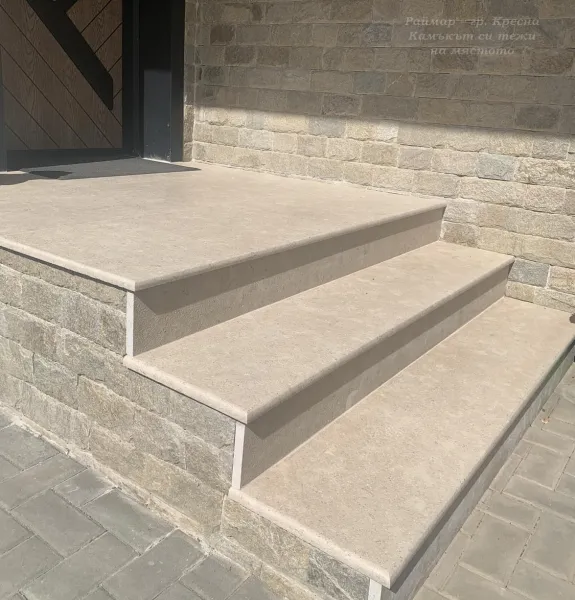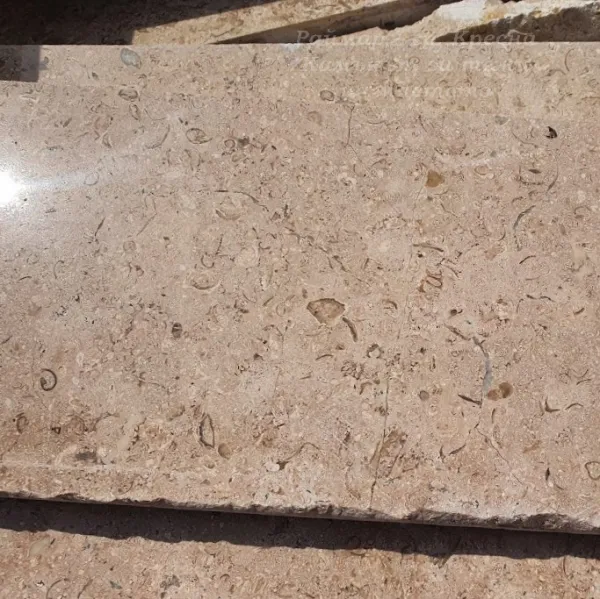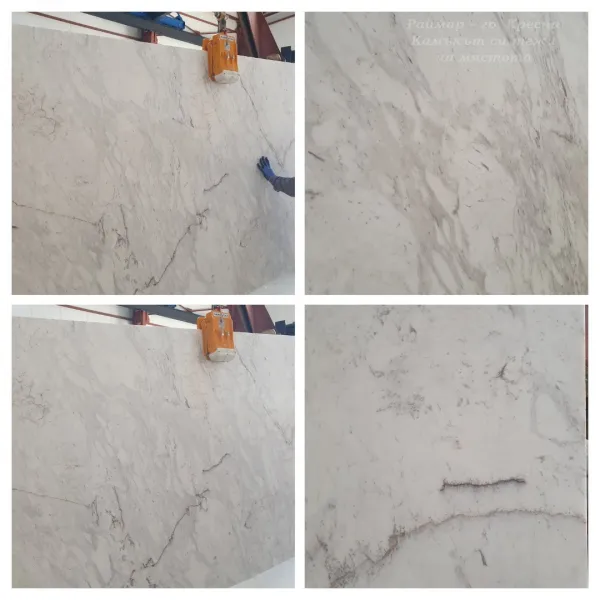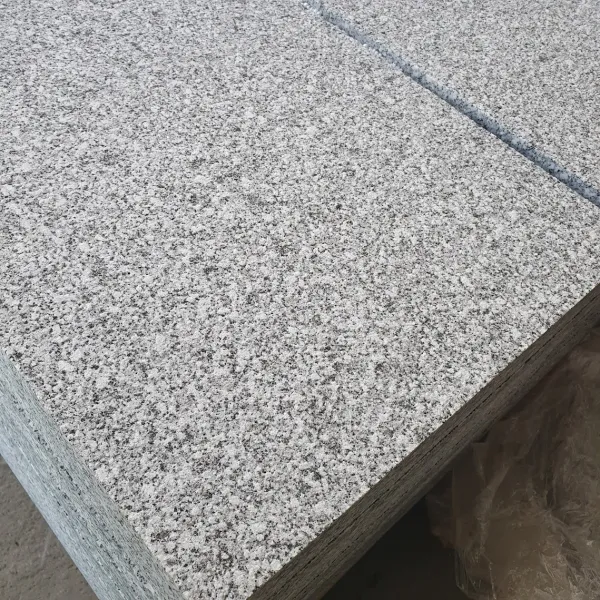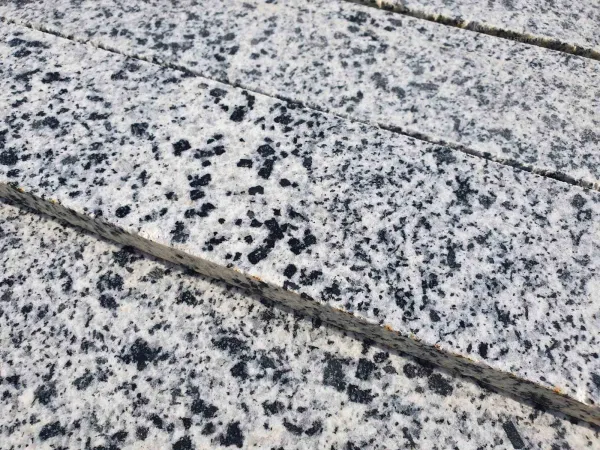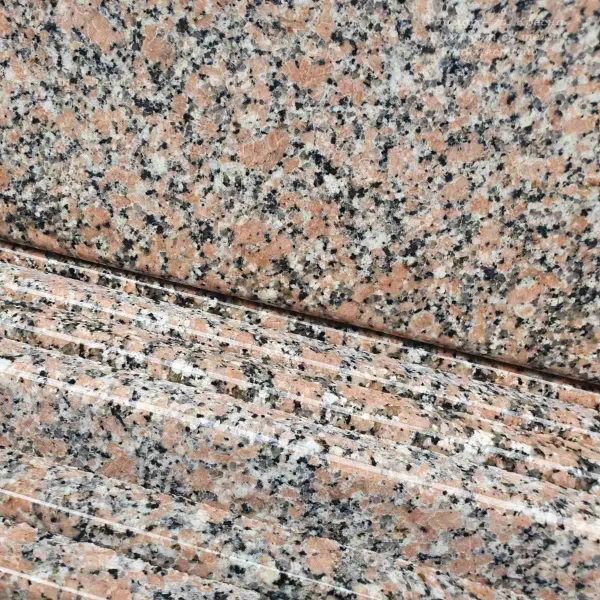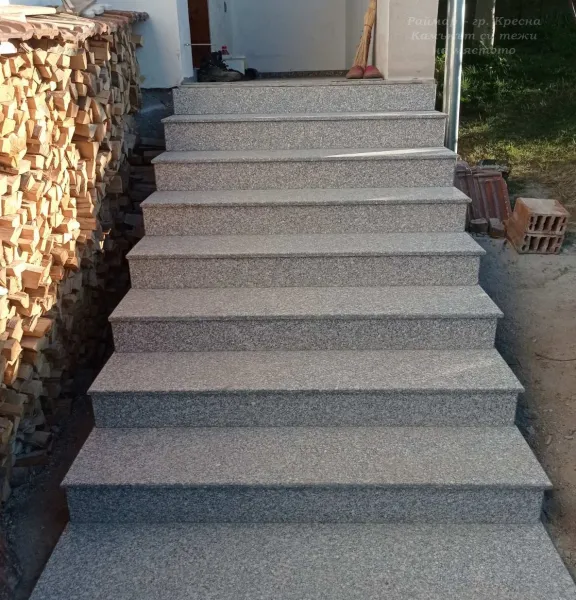| |
Production lead time
|
|
Material
|
Limestone
|
|
Natural stone
|
Limestone Vratza
|
|
Finish
|
Antique
|
|
Price / Unit
|
Price per 1 sq.m
|
|
Thickness of the tiles
|
2 cm
|
| |
3 cm
|
|
Weight per 1 sq.m
|
60-70kg/sq.m
|
|
Natural stone specifics
|
Possible deviations and variations in the colors and textures of the stone tiles are expected (resulting from the natural origin and formation of the stone).
|
| |
The cut to size stone tiles have nominal dimensions with a tolerance of up to ± 3mm (not calibrated).
|
| |
Always plan for a 10% advance on the net square footage
|
| |
Our products are handmade craftsmanship, made by artisans (stone masons).
|
| |
Pre-sorting by color or caliber, as well as preferences for nuances, patterns, or color variations in the stone, is not possible in advance.
|
|
Recommended adhesives
|
Cement adhesive class C2TES1: C - cementitious, 2 - improved strength properties, T - fixing, anti-slip, E - extended open time, S1 - elastic, for linear expansions (+ addition of TRAS against salt appearance/efflorescence)
|
|
Protection, mandatory impregnation, and maintenance (LTP or AKEMI)
|
For protection against water absorption: Universal stone impregnator (LTP or AKEMI)
|
| |
For protection against water and grease absorption: Stone impregnator Mattstone H2O
|
| |
Always clean natural stone with pH-neutral products only (LTP or AKEMI).
|
The limestone from Vratsa, also known as Vratsa stone, is the most famous Bulgarian stone. It is extremely popular for window sills due to its subtle and delicate appearance, which pairs well with all types and colors of plaster and window frames. The price-quality ratio of Vratsa stone is more than excellent. Its aesthetic value is comparable to that of more exotic and expensive stones.
Brushed Vratsa limestone, with a thickness of 2 and 3 cm, is one of its variations, preferred by those seeking a more rustic look and who appreciate stones with pronounced imperfections, adding character to a space. It can be used for window sills in country houses, as decorative wall stone, for countertops, and other interior elements.
Vratsa limestone impresses with its natural beauty and warm, earthy tones. It is usually light-colored, predominantly featuring shades of cream, beige, and light gray, making it easy to combine with various materials and colors.
One of the key advantages of Vratsa limestone is its durability. It is naturally resistant to weathering and, with proper maintenance, retains its appearance effortlessly. Although it is relatively soft compared to granite or marble, Vratsa limestone boasts excellent strength and resilience to outdoor conditions.
The limestone from Vratsa also has good thermal insulation properties. It is resistant to both high and low temperatures, making it suitable for use in regions with hot or cold climates without losing its properties or aesthetics.
Using Vratsa limestone is a long-term investment. It requires minimal maintenance to preserve its aesthetic appeal and functionality. By impregnating the stone's surface with quality natural stone sealers, you will maintain its appearance for many years to come.
We recommend the Eco water-based impregnator "Matstone H20" by the British manufacturer LTP for treating brushed Vratsa limestone.
Explore all the cut-to-size slab options.
Like every beautiful thing and like every natural material, natural stone requires proper care and maintenance.
We recommend: always treat stone surfaces with the right products for natural stone!
Regardless of the type of stone and its location, a single application of sealing agent will save you unnecessary worries and greatly facilitate maintenance.
Everything needs care. Use the high-quality German products from AKEMI, with which we have been working and recommending for years.
The treated impregnated surface does not allow water and contaminants to penetrate.
The protection with a sealer provides resistance against the destructive cycles of freezing and melting in external conditions. Water simply does not absorb when the stone surface is impregnated but forms droplets.
Depending on the type of sealer, it may not alter the external appearance of the stone or deepen its colors. Choose among the following types of sealers:
"Universal" sealer, which does not change the appearance of the stone and protects against water.
"Wet Effect" - a powerful sealer, like the Universal one, but with colors standing out in a more intense contrast.
"Stain-Free" is the best sealer: it protects against water and grease, also without changing the external appearance of the stone.
The frequency of reapplication depends on conditions and the usage of the stone tiles (whether it is flooring and traffic intensity). Usually, AKEMI recommends every 5 years for exterior stone, flooring + wet areas, and 10 years for interior stone (wall cladding).
How to apply the sealer? - It's easy, like child's play. The stone surface must be clean and very dry. The liquid is applied undiluted with a roller, sponge, or brush. If the surface is smooth polished or matte, a second step is required: the so-called "polishing" with a microfiber cloth for 20 minutes after applying the sealer. And we're done.
What cleaning products are used for natural stone? - Some types of stone, such as marble and travertine, are sensitive to acidic, very strong cleaning agents (e.g. bleach). We recommend: always clean your stone surfaces with a pH-neutral cleaning agent.
Ask us if you have any more questions! We are here and happy to assist.
How to breathe new life into natural stone in the exterior?
In a few steps, natural stone can be restored to its original state, in its full brilliance and aesthetics.
First and foremost is regular cleaning and at least once a year thorough washing with a pressure washer. This is particularly important for our outdoor furniture products (barbecues, sinks, tables, countertops, and pavement tiles).
Once the surfaces are clean and dry, do not forget to apply a sealer.
Tip: Protect your outdoor flooring from furniture that may rust.
For specific stains such as oily spots, efflorescence (cement milk), mold, cement residues, or grout mixtures, silicones, or paints, it is best to contact us directly for consultation. Count on us; we will provide you with the right products to address the issue, wherever and whenever possible.
The durability of natural stone depends on the specific porosity of the stone type and its water absorption levels. For example, the porosity of granite and gneiss is around 1%, while sandstone has over 20%.
The biggest destructive enemies for items, coverings, and pavements exposed year-round are the sun and freeze/thaw cycles. When the stone is sealed/waterproof, you will receive maximum protection and much easier maintenance.
In severe cases of areas with contamination, the non-polished stone surface can be treated with an angle grinder and fine sandpapers. This process removes the top layer of the stone, making it look like new. (The process is similar to sanding wooden parquet.)
Stone is the best friend of the yard and garden. With love for beautiful, natural materials and proper care, the stone will continue to bring you joy for many years to come.




 Български
Български




